For the past two years I have made very slow progress in attempting to convince Poole Hospital to open access to their MRI scanners for research purposes. Whilst I had originally responded to an email from them it seems there were not at all ready to deal with my requests. More recently there has been some positive movement on the issue. I am hoping that this technology might interest you. Poole Hospital has three scanners of two field strengths: two at 1.5T and one at 3T, the latter being the standard for neuroimaging, but the former being of use for high-resolution structural scans of people and objects. The applications for this type of technology are many; in psychological research it is used most commonly to get brain scans of patients or to measure brain activity as people perform tasks, but has been used effectively as an analytical tool in Archeology and Sports Science; you will know better than I how this technology has been used in your fields. I am trying to gauge the level of interest in this technology at BU so as to make a better case to BU and to the hospital. Please contact me on bparris@bournemouth.ac.uk if there is utility in the use of this technology in your research or teaching or if there could be in the future.
Category / Research themes
Erasmus students enjoying microbial life!

The new Faculty of Science and Technology has started the new year welcoming three new Erasmus students through the TECHNO 1 and 2 (Erasmus Mundus Partnership) and the Erasmus Practicals placements, respectively. Two of them are being hosted by Dr Genoveva Esteban, Conservation Ecology and Environmental Science Group: Hai Luu, from Tra Vinh University, Tra Vinh province in Vietnam has a Techno 2 studentship until mid June; Sara Giménez, from University Rey Juan Carlos in Madrid, Spain, has a placement studentship for three months. Hai and Sara are working with Genoveva on unicellular organisms from freshwater habitats and from soils; these microscopic organisms can be used in the assessment and monitoring of water and soil quality. Hai says: “TECHNO project brought me a great opportunity to study in an advanced education environment. Also, I am really interested in research on single-celled organisms and hope to learn from Dr Genoveva Esteban’s experience”. Sara adds “This opportunity allows me to meet some fantastic people and get unique experiences, and on top of this I am getting fascinating scientific knowledge”.
The persons in charge of TECHNO 1 and TECHNO 2 at BU are Dr Demetra Andreou (Lecturer in Environmental Science), Dr Emilie Hardouin (Associate Lecturer in Conservation Genetics) and Mrs Heather Cashin (Senior Programme Administrator).
HSC student Jonathan Branney wins Santander award
Congratulations to Jonny, an HSC PhD student based at AECC, on being successful in the latest round of BU Graduate School Santander Mobility Awards. He previously had an abstract accepted for the BritSpine conference, 2-4 April, University of Warwick, and this award will enable him to attend and present his PhD work on spinal manipulation and neck pain.
BritSpine is the biennial scientific congress of the United Kingdom Spine Societies (UKSSB). The UKSSB represents the British Association of Spine Surgeons (BASS), the British Scoliosis Society (BSS) and the Society of Back Pain Research (SBPR) making BritSpine the largest and most prestigious spine research conference in the UK. The Santander Mobility Award of £750 will support Jonny to represent BU and give an oral presentation of his work to spine researchers and clinicians from all over the world.
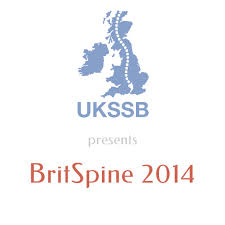
Jonny’s thesis is entitled, “An observational study of changes in cervical inter-vertebral motion and the relationship with patient-reported outcomes in patients undergoing spinal manipulative therapy for neck pain”. If you’d like to know more you might like to check out his blog. He is supervised by Professors Alan Breen and Jenni Bolton (AECC) and Dr Sarah Hean at BU.
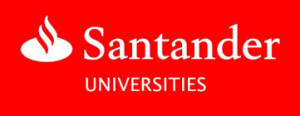
HSC student Jib Acharya wins Santander award
 HSC PhD student Jib Acharya has been successful in the recent round of BU Graduate School Santander Mobility Awards. The panel felt that his case for support was well justified and the Graduate School in conjunction with Santander and the Development Office will be supporting him to a value of £1000.00. The award is made available for Jib to attend the Third World Congress of Public Health Nutrition in November 2014 in Spain. (website: http://www.nutrition2014.org/)
HSC PhD student Jib Acharya has been successful in the recent round of BU Graduate School Santander Mobility Awards. The panel felt that his case for support was well justified and the Graduate School in conjunction with Santander and the Development Office will be supporting him to a value of £1000.00. The award is made available for Jib to attend the Third World Congress of Public Health Nutrition in November 2014 in Spain. (website: http://www.nutrition2014.org/)
The PhD thesis research of Jib Acharya is based on A comparative Study on Nutritional Problems in Preschool Aged Children of Kaski District of Nepal. His mixed-methods thesis brings together the academic fields of (a) Nutrition and (b) Public Health. His research is supervised by a team of three BU supervisors: Dr. Jane Murphy, Prof. Edwin van Teijlingen, and Dr. Martin Hind.
Congratulations,
Prof. Edwin van Teijlingen
Centre for Midwifery, Maternal & Perinatal Health
Jewel of India
Congratulations to Dr Venky Dubey who has received the Hind Rattan Award from the NRI Welfare Society of India in recognition of outstanding services, achievements and contributions to the chosen field.
Translated as “Jewel of India”, the award is one of the highest granted annually to a non-resident Indian (NRI) and is considered to be equivalent to an OBE.
Dr Dubey is an Associate Professor at BU who specialises in robots and medical applications of robotics in particular. He said: “To receive an award of this order is very satisfying in itself, but the international recognition is simply overwhelming. This external recognition keeps me motivated. I am privileged to have an excellent team of researchers around me without which it would not have happened.”
This is the latest in a series of accolades achieved by Dr Dubey, who’s epidural simulator project won the Information Technology category at the Institution of Engineering and Technology (IET) Innovation Awards at the end of last year. The medical device developed by the BU research team and Poole Hospital, will make epidural injections safer and more effective. Read more about this particular project here.
Migration to Cloud Computing – The Impact on IT Management and Security
 We would like to invite you to the next research seminar of the Creative Technology Research Centre that will be delivered by Adel Alkhalil.
We would like to invite you to the next research seminar of the Creative Technology Research Centre that will be delivered by Adel Alkhalil.
Title: Migration to Cloud Computing – The Impact on IT Management and Security
Time: 2:00PM-3:00PM
Date: Wednesday 5th February 2014
Room: P302 (Poole House, Talbot Campus)
Abstract: Cloud computing is a new paradigm for emerging technology in computing and IT industries that has had a considerable impact on organisations, not only by increasing the efficiency of acquiring IT resources, but also on IT management roles, organisations strategies, IT projects management, and organisations’ security. This research explores the factors that influence the decision making for cloud migration and the impact on IT management roles through a series of in-depth interviews with cloud-users, security professionals and cloud providers. The main tasks that organisations should consider to successfully manage the process of cloud migration are identified. The impact of cloud computing on organisations’ security is investigated by comparing end users’ concerns against cloud computing security landscapes. A framework is proposed that supports the decision making process for cloud migration.
We hope to see you there.
International survey post-Millennium Development Goals
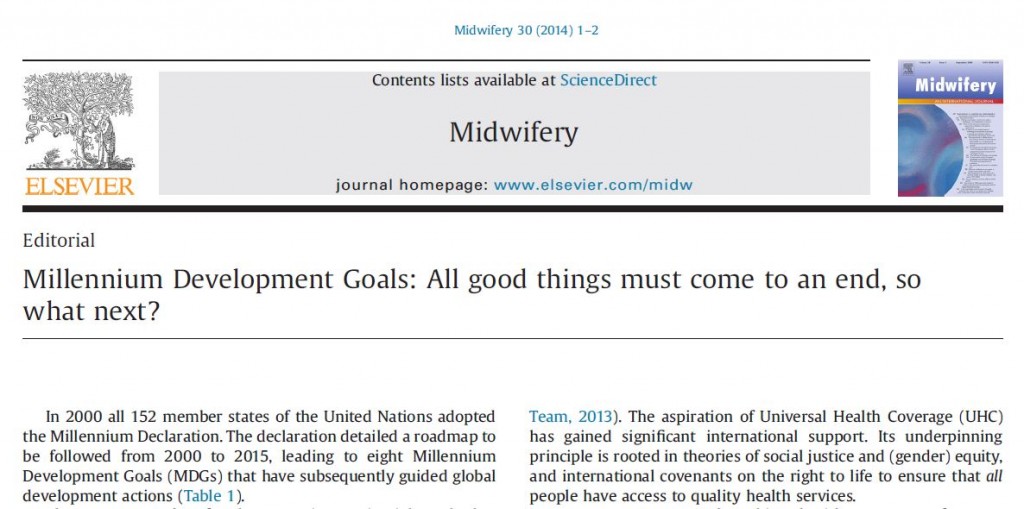 The Millennium Development Goals (MDGs) have focused the attention of policy-makers, international and national organisations, journalists, health care providers and educators, particularly in low-income countries. To address “What will happen when we reach the MDG target date in 2015?”, we are running a survey to gather views on wording, targets and indicators that will strengthen the post-MDGs discussions on health, gender and equality. We seek your views on how to facilitate the implementation of the global evidence-base on woman-centred, universal care that: a) strengthens sexual and reproductive health services and primary health care; b) delivers equitable, effective coverage; and c) reduces maternal and newborn mortality. We do not ask your name/address.
The Millennium Development Goals (MDGs) have focused the attention of policy-makers, international and national organisations, journalists, health care providers and educators, particularly in low-income countries. To address “What will happen when we reach the MDG target date in 2015?”, we are running a survey to gather views on wording, targets and indicators that will strengthen the post-MDGs discussions on health, gender and equality. We seek your views on how to facilitate the implementation of the global evidence-base on woman-centred, universal care that: a) strengthens sexual and reproductive health services and primary health care; b) delivers equitable, effective coverage; and c) reduces maternal and newborn mortality. We do not ask your name/address.
Survey link: https://www.surveymonkey.com/s/L95SLVV
The survey links to the international conference ‘Midwifery and the post MDG agenda’ to organised on 5th February 2014. The conference focuses on the future of measurement of progress in the field maternal and newborn health and health-care provision to pregnant women, new mothers and their babies. See:
http://news.bournemouth.ac.uk/events/event/midwifery-and-the-post-mdg-agenda-5-february-2014/
We have highlighted the forthcoming conference in a recent editorial in the international academic journal Midwifery.
Thank you helping us by completing this survey,
Prof. Vanora Hundley & Prof. Edwin van Teijlingen
On behalf of the University of Southampton, ICS Integrare, Bournemouth University, Evidence for Action, the University of Aberdeen, Options, UCL.
CIM Dorset Event – Make the Most of Mobile – Duncan Cook from 3 Sided Cube
Duncan Cook of internationally-renowned, locally-based mobile app development agency 3 Sided Cube is the next speaker in the CIM Dorset series of Entrepreneurial Sessions. Having been invited to the White House because one of their apps helped save the lives of literally thousands of Americans and with their apps now being translated into more and more languages, 3 Sided Cube really are known all over the world for what they do.
Duncan will be sharing his insights on mobile, dispelling myths about what does and doesn’t work and generally enlightening the audience with his views on the future of this exciting industry.
We’ve all got smartphones and its people like Duncan that make them useful. As marketers, it’s incumbent upon is to understand their potential.
Arrival from 6pm for a 6:30pm start. Networking from 6pm until the event start. To book please visit http://bucfe.com/events/mobile/
Book early as we expect to sell out quickly!
Arrival from 6pm for a 6:30pm start. Networking from 6pm until the event start.
HSC wins at PGR conference!
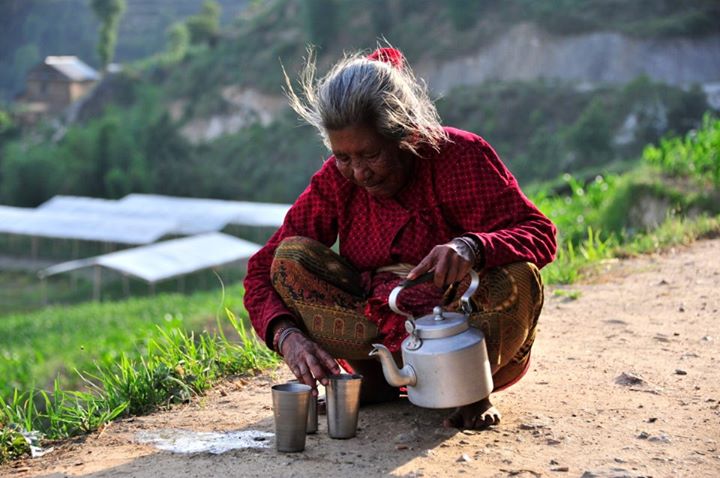
HSC was well represented at the BU 6th Annual Postgraduate Conference 2014 with talks under the themes Lifelong Health and Wellbeing and Ageing, Society and Dementia by:
Jonathan Branney :“Is spinal manipulation associated with changes in cervical inter-vertebral motion”
Ashley Mitchell: “Can we fix it?!: Understanding the impact of children’s hospices on parental relationships of life-limited and life-threatened children and young people”.
Ben Hicks: “Using commercial computer game technology to benefit men with dementia residing in rural areas of Dorset”
Mevalyn Cross (HSC) won a prize for best xxx oral presentation with her work with Les Todres on “The delivery of humanly sensitive care in an older person’s hospital setting: A phenomenological and action research study”.
Also winning a prize for her photo, Sheetal poster, photo and oral presentations on “Pregnant and dirty: A qualitative study of childbirth practice, beliefs and myths in Nepal”. The paper is currently under review by eBU. eBU editor Andrew Harding, PGR, HSC was present and encouraged conference attendees to submit to eBU, as their abstracts will be published in eBU.
Also present was first year Clare Farrance part of the organising committee with Ashley and a chair. And a theme Leader: Professor Edwin van Teijlingen, Professor of Reproductive Health Research who spoke of student engagement with their profile pages, blogging and publishing endeavours.
Highlights included a keynote presentation by Professor Kevin Warwick, Professor of Cybernetics, from the University of Reading who twice has had implants which permitted manipulation as part of robot learning and appears in the 2013 edition of the Guinness World Records Book for the first direct electronic communication between two nervous systems with his wife Irena. His work centers on artificial intelligence, biomedical engineering and control systems.
Definitely a conference with something for everyone and a opportunity to engage with other schools.
Other presentations from HSC included:
Photos presentations:
Jib Acharya: “The Raute: An Ethnic and Nomadic Group (the hunters and gatherers) estimated from 900 years ago and few remaining only in South Asia”
Clare Farrance: “Keeping your fingers crossed for a health old age”
Posters included:
Jib Acharya: “A Comparative study on Nutritional Problems in Preschool aged children of the Kaski District of Nepal”
Jennifer Roddis: “Experience of interviewing: Face-to-face-v-Telephone”.
Thank you to Vanora Hundley and Jen Lemmon for their feedback.
Midwifery success in Portsmouth and the Isle of Wight
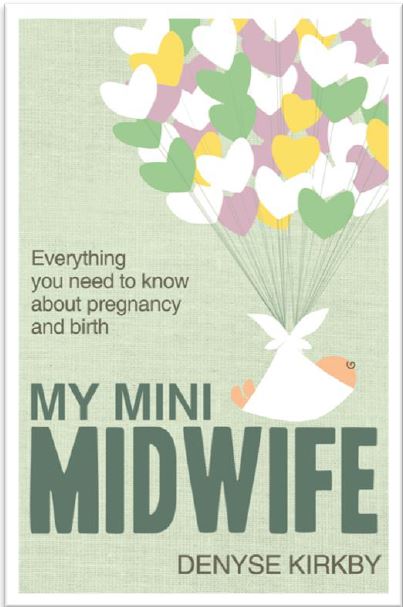
Denyse King’s My Mini Midwife is due for publication in February. Denyse King is Lecturer in Midwifery / Public Health Practitioner based in Portsmouth.
My Mini Midwife by Denyse Kirkby is published by VIE Books, a new imprint of Summersdale Publishers. The book is priced at £8.99 (ISBN: 978-1-84953-516-8)
The second success story is Wendy Marsh Lecturer/Practitioner in Midwifery also based in Portsmouth who had an abstract accepted for the ‘Safeguarding the Vulnerable International Symposium’ to be held at Bucks New University in High Wycombe.
Also the Centre for Midwifery, Maternal & Perinatal Health won three BU matched funded Ph.D. studentships. The first two are with Portsmouth Hospitals NHS Trust:
An Exploration of the Community by Midwives and Maternity Support Workers in the Postnatal Period – supervisors: dr. Carol Wilkins, dr. Janet Scammell & dr. Sue Way
Just one drink! An exploration of the conflict between harm reduction and abstinence in UK maternity care – supervisors: Prof. Edwin van Teijlingen, dr. Liz Norton and dr. Greta Westward (PHT)
The third one is a new collaboration with the Isle of Wight NHS Trust:
Can Pelvic Positioning help women cope with pain in early labour – supervisors: Prof. Vanora Hundley, dr. Carol Clark and dr. Sue Way
Prof. Edwin van Teijlingen & Prof. Vanora Hundley
Centre for Midwifery, Maternal & Perinatal Health
New research web pages and removal of old pages
On Monday 27 January the Digital Communications Team will integrate the new research web pages into the main BU site.
This will include a link from the homepage and from the School pages. (School copy has been developed with the Deans and DDRs to introduce the new site, provide an overview of the School’s research and outline the research themes the School is involved in).
The Digital Communications Team will also start removing the old research pages on Monday. This will include removing the research centre pages, which have either been moved to the new site, elsewhere, or identified as no longer required.
In addition to notification from Professor Matthew Bennett and the Schools, the research website team have tried to speak to all staff in person to ensure required content is moved across and outdated content is removed. This has been a massive exercise and apologies if we have missed anyone. If you do have any concerns regarding your pages, please email the website team as soon as possible. All old content will be moved onto an internal BU server, where it will be kept for a period of six months before being finally deleted.

Feedback from researchers already using the new site is that it is very flexible, quick and easy to use and allows easy integration of a variety of different media content types.
If you would like to find out more about using the new site or joining us for a training session, please read my blog post from earlier in the week.
Good start of the year: Early crop of 2014 publications
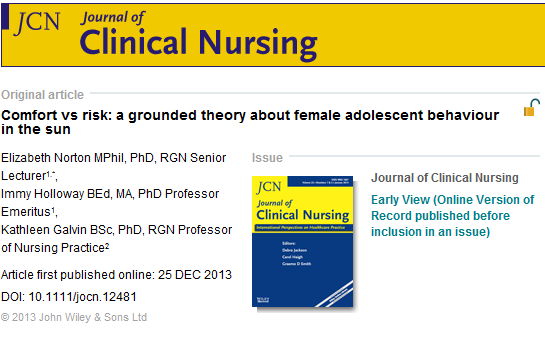
HSC staff saw the fruit of their hard work in 2013 as a great number of papers have been accepted for publication or actually appeared in print in the first three weeks of January.
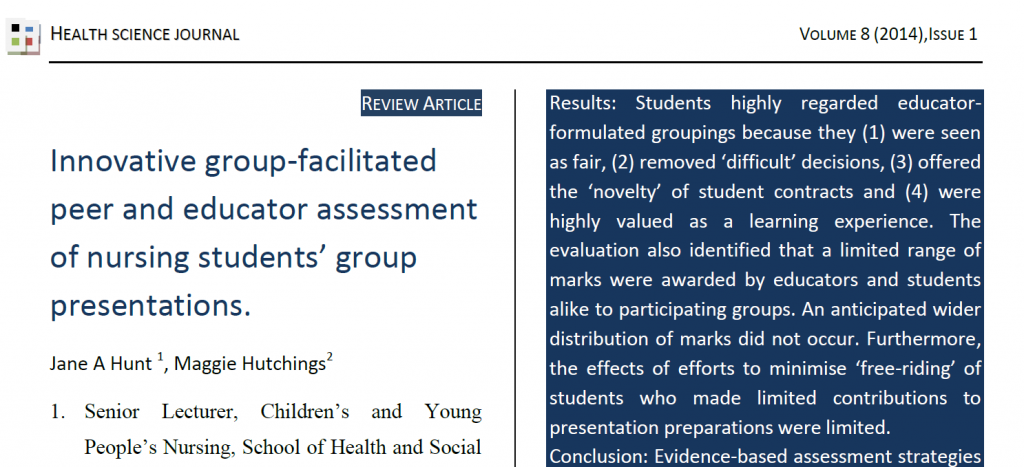
There are a number of 2014 papers in health care journals, including papers in Nurse Education in Practice, The Practising Midwife, Journal of Clinical Nursing, Birth, ISRN Family Medicine, Perspective in Public Health, an editorial in Midwifery and two in the same issue of Health Science Journal. There was also an early contribution from our social science colleagues in The Journal of Adult Protection and, last but not least a book chapter in Case Studies in e-Learning Research.
- Morley, D., 2014. Supporting student nurses in practice with online communication tools. Nurse Education in Practice, 14, 69-75.
- Bennett, S and Scammell, J (2014) Midwives caring for asylum-seeking women: research findings. The Practising Midwife. 17 (1) p9-12
- Whitford, H., Aitchison, P., Entwistle V.A., van Teijlingen, E., Davidson, T., Humphrey, T., Tucker, J. Use of a birth plan within woman-held maternity records: a qualitative study with women and staff in northeast Scotland, Birth (accepted).
- Norton, E. 2014 The application of humanization theory to health-promoting practice. Perspectives in Public Health, (online first 2013)
- Sapkota, T., Simkhada, P., van Teijlingen, E. (2014) Nepalese health workers’ migration to the United Kingdom: A qualitative study. Health Science Journal 8(1): 57-74.
- Hunt, J.A., Hutchings, M. (2014) Innovative group-facilitated peer and educator assessment of nursing students’ group presentations, Health Science Journal 8(1): 22-31.
- Harding, A., Sanders, F., Medina Lara, A., van Teijlingen, E., Wood, C., Galpin, D. Baron, S., Crowe, S., Sharma, S. Patient choice for older people in English NHS primary care: theory & practice, ISRN Family Medicine (accepted).
- Norton, E., Holloway, I., Galvin K. 2014. Comfort vs risk: a grounded theory about female adolescent behaviour in the sun. Journal of Clinical Nursing. (online first 2013)
- van Teijlingen, E., Hundley, V., Matthews, Z., Lewis, G., Graham, W.J., Campbell, J., ten Hoope-Bender, P., Sheppard, Z.A., Hulton, L. (2014) Millennium Development Goals: All good things must come to an end, so what next? Midwifery 30: 1-2.
- Parker, J., Ashencaen Crabtree, S. (2014) Covert research and adult protection and safeguarding: an ethical dilemma? The Journal of Adult Protection (accepted).
- Hutchings, M, Quinney, A., Galvin, K. Clark, V. book chapter IN: ‘The Yin/Yang of Innovative Technology Enhanced Assessment for Promoting Student Learning’ Case Studies in e-Learning Research. Book is now available at: http://www.academic-bookshop.com/ourshop/prod_2915879-Case-Studies-in-eLearning-Research-for-Researchers-teachers-and-Students.html
Prof. Edwin van Teijlingen
Centre for Midwifery, Maternal & Perinatal Health
Toward a better science of promoting walking: A cross-school Fusion project
Samuel Nyman (Psychology, DEC), Andrew Callaway (ST), and Kelly Goodwin (ST) were awarded Research Development Fund – Small Grant funding for 2013 to conduct a study to promote walking among older people. Over the summer they identified a further fusion opportunity so that students from both schools could be involved. They report their experience here:
Co-creation in the School of Tourism
Our study began with the purchase of pedometers (small device to count walking steps) and actigraphs (small device to count walking steps but can also measure intensity, i.e. if walking or running). These were then used by students in the School of Tourism in a group project. Their task was to recruit 10 older people from the local community to take part in a study whereby they wore the devices every day for 60 days to measure how much walking they did. But this was not just a sports science project to look at whether pedometers or actigraphs reported the same results. It was multidisciplinary in that participants were enrolled into an N-of-1 randomised controlled trial (RCT), whereby each day they took part in a different psychological condition. Each morning participants had to set a goal for the day that was either to increase their walking steps or eat more fruit and vegetables (active control condition). They also had to either wear a pedometer that showed them how many steps they had walked so far that day, or a pedometer that was sealed (and so they would not know how many steps they had walked; another active control condition). These different conditions were based on control theory, that suggests that if people set themselves a goal to walk more, and can keep check on how much they have done, then they will be likely to walk more steps on those days than on the other days (when they had to state a goal for fruit and vegetable intake and could not see how many steps they have done). N-of-1 trial designs are recommended by the MRC framework for developing and evaluating complex interventions and help ascertain whether theories work at the individual level.
This part of the project was completed before the summer of 2013, and provided students in the School of Tourism a group project and a very useful learning experience. Students were posed with a more challenging and rewarding project of engaging with older people with the local community. They also had to contend with the challenges of group work, project management, learning and teaching others to use the objective physical activity monitors, and dealing with the challenges of conducting short-longitudinal data collection in the field. The students helped in the co-creation of new knowledge to test if pedometers or actigraphs were better at measuring walking activity, and in testing whether control theory shows promise as a means of behaviour change at the individual level measured by walking activity.
Co-creation in the School of Design, Engineering and Computing
Before launching into the analysis over the summer, the project team (Nyman, Callaway, and Goodwin) identified a further opportunity to enhance the data collected by the above student group project and provide a further opportunity for fusion.
Andrew Callaway identified that published studies in this area simply compare one measure of physical activity with another, as we had done, with no evidence as to which is the closest to a ‘true’ measure of what really happened (both devices will not be completely accurate). He proposed a further study that compares the two measures of pedometers and actigraphs against a criterion measure – a measure that was known to be truly accurate. This entailed the design and implementation of a laboratory-based study whereby students would walk on a treadmill and have their physical activity monitored by several devices simultaneously, including manual and video-recording of steps walked.
The set up entailed volunteers to walk on a treadmill at different speeds (all comfortable walking paces) with pedometers, actigraphs, and a sensewear armband strapped on them, and a video camera recording their walking plus other volunteers manually counting the number of walking steps performed. You will be surprised how difficult it can be to correctly count the number of steps walked in a two minute period! With the combination of all these measures we should arrive at a close to ‘criterion’ measure to compare the devices with.
Third year students from the BSc Psychology framework who had elected to study the Health Psychology unit volunteered to help with this experiment in the Sports Lab. This was a great learning opportunity for the psychology students as none of them had seen the sports lab before or the equipment used for physical activity monitoring. In the session the students also had the opportunity to engage with two members of staff and five third year student volunteers from the School of Tourism to access their expertise in sports science and performance analysis. Dr Nyman also used the sessions as an opportunity to relate the material from the lecture the day before to the seminar sessions, and to demonstrate to students the output that can be obtained from actigraphs (using TV screens) and what this affords in terms of more nuanced health psychology research questions that can be answered. The students had the opportunity to be involved in the co-creation of new knowledge that will challenge the perceived wisdom of the reliability of objective physical activity monitoring.
Conclusion
After recently completing the laboratory experiment, we now have all the data to begin analysis and writing up. We are pleased with the outcome of the two studies above and feel they are a great example of fusion in terms of cross-school collaboration and co-creation of new knowledge, embedded within existing teaching programmes. Conducting the two studies has also provided us as researchers with new data that will lead to peer-reviewed publications.
We would like to thank the older people and health psychology students that volunteered to help with the studies, and the School of Tourism students that volunteered to help us with the recent laboratory experiment.
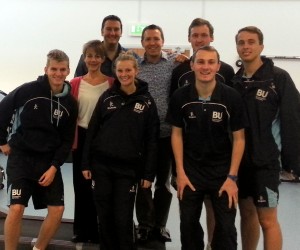
- Students who helped with the project: Front Row (L to R): Sam Sayer, Emma Rylands, Joe Hill. Second row (L to R): Calum Sharpin, James Baum.
Dr Samuel Nyman, BUDI and Psychology Research Centre
Andrew Callaway and Kelly Goodwin, Centre for Events and Sport Research
The BUDI Themes – how you can get involved with dementia research!
The BUDI Themes – how you can get involved with dementia research!

The Bournemouth University Dementia Institute (BUDI) continues to expand and build on its excellent start since its launch in May 2012. We are pleased to have recently welcomed three research assistants to the team who are helping prepare grant proposals for various research and enterprise income. On the 24 October BUDI held an away day with 25 staff (7 others were unable to attend) to discuss our strategy for meeting our targets for developing successful research proposals. While we had a successful meeting and are energised to write research grant proposals, the BUDI team would like to extend an invitation to colleagues from across all schools to partner with us in writing bids for research and enterprise income.
To this end, BUDI will be hosting an informal tea / coffee and cake morning on Tuesday 28 January 2014 in The Retreat, for staff to come and meet the team and discuss their potential collaboration with BUDI on dementia research projects.
To help staff see where they might work with BUDI, we have summarised the five BUDI themes below. Under each theme we engage in research, and provide consultancy, service evaluation, and education / training services. However for this event, we are looking in particular to partner with colleagues in developing research grant proposals:
Theme 1: Dementia Awareness and Knowledge Translation
This theme is about raising awareness of dementia in the community and translating knowledge into practice. It is about challenging stereotypes and assumptions made of people with dementia. For example, we are holding an ESRC-funded public engagement event on dementia and showcasing the work of BUDI.
For more information, please contact Anthea Innes or Clare Cutler.
http://blogs.bournemouth.ac.uk/dementia-institute/dementia-awareness-education-and-knowledge-translation/
Theme 2: Dementia Friendly Environments
This theme is about making sure that the environments in which people live and frequent are designed in a manner that is accessible for people with dementia. For example, ensuring care homes and hospitals are designed to help prevent people getting lost and able to access toilets, gardens.
For more information, please contact Jan Wiener or Mariela Gaete-Reyes.
http://blogs.bournemouth.ac.uk/dementia-institute/dementia-friendly-environments/
Theme 3: Improving Services and Care Provision
This theme is about striving to provide the best in health and social care for people with dementia and best support for their carers. For example, working with care homes and community services to evaluate and improve the care they provide so that it better meets the needs and preferences of individuals.
For more information, please contact Samuel Nyman or Clare Cutler.
http://blogs.bournemouth.ac.uk/dementia-institute/improving-services-and-care-provision/
Theme 4: Dementia Friendly Leisure
This theme is about working with the leisure and tourism industry to improve the accessibility of services so that they can be enjoyed by people with dementia. For example, helping museums, art galleries, hoteliers, etc. become more dementia friendly to facilitate social participation by people with dementia in their local community and tourist sites.
For more information, please contact Stephen Page or Anthea Innes
http://blogs.bournemouth.ac.uk/dementia-institute/dementia-friendly-tourism-and-leisure/
Theme 5: Leadership, Education and Staff Development
This theme is about influencing leaders and managers so that organisations can improve their dementia awareness and effectiveness in serving people with dementia. It is also about developing the knowledge and skills of staff who directly serve people with dementia.
For more information, please contact Rick Fisher or Anthea Innes
http://blogs.bournemouth.ac.uk/dementia-institute/leadership-and-staff-development/
We hope that many colleagues will be able to attend the event and foster research proposals together. If you are able to attend, please inform Michelle O’Brien mobrien@bournemouth.ac.uk in advance by Monday 20 January for catering purposes. If you are unable to attend but would like to discuss a research theme, please contact the relevant theme lead mentioned above.
The BUDI team
NRG talk on Victorian narratives of motherhood
We are delighted to announce that Professor Emma Griffin from the University of East Anglia will be presenting a paper to the Media School’s Narrative Research Group as part of this semester’s series of talks. The title of Emma’s paper is ‘Victorian Mothers: perspectives from working-class autobiography’, and the full abstract for Emma’s talk appears below. The event will take place at 4p.m on 5 Feb in the Casterbridge suite. All welcome.
Abstract:
Historians like to imagine that emotions such as maternal love are largely constant across time and space. They argue that mothers in earlier times loved their children in much the same way as we do today, though they accept that love was often expressed in different ways. This paper turns to working-class autobiography to consider these claims. It asks how the emotional ties of family life were expressed and sustained in households where space and resources were scarce. It concludes that material deprivation had the power to undermine family relationships in ways that historians have usually been reluctant to admit.
Research website training sessions
BU’s new research website is an externally facing communications channel. It allows you to add and update research-related content quickly and easily. The site is flexible and accommodates a range of digital media content. You can login with your usual BU username and password and start creating content here.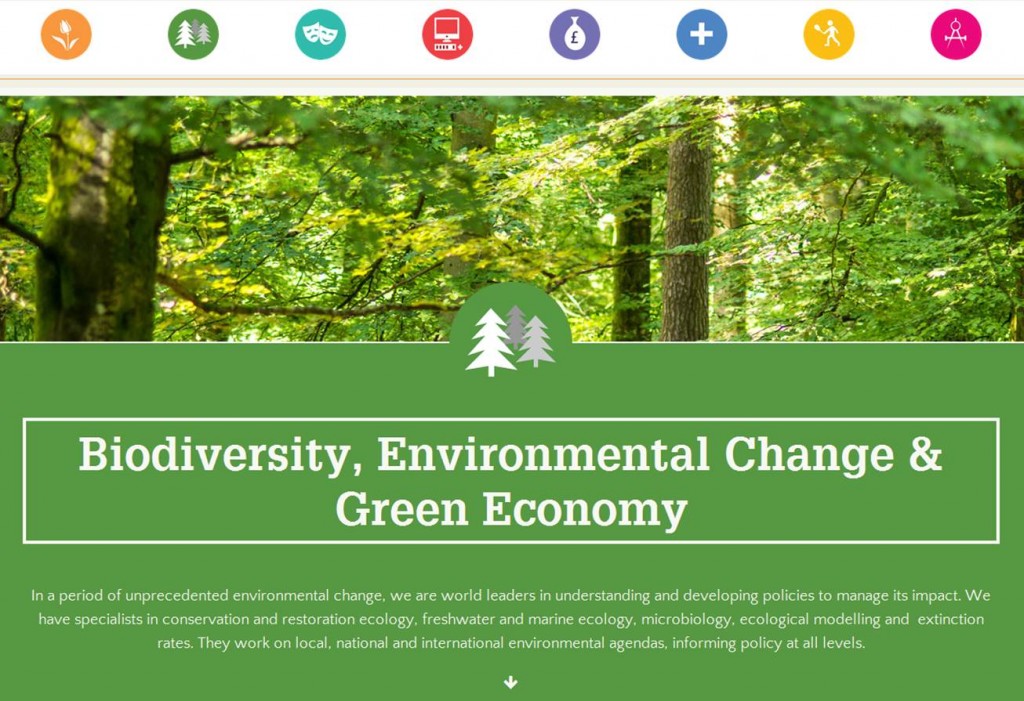
We are hosting a series of 90 minute training sessions, which are open to all BU academic staff, post graduate research students and those supporting researchers in their communications activity.
During the session you will learn the following:
- Why BU has a new research website
- How you can upload content to the website
- How the site can be used most effectively to maximise exposure of BU research.
There are three sessions taking place next month on Talbot Campus and at the Lansdowne. These are hosted by the website designer Matt Northam and me. Sessions are informal and if they fall over lunchtime, do feel free to bring a sandwich!
To book on one of the following sessions please use the links below…
Friday 7 February 2014 12:00-13:30 – S103 Studland House, Lansdowne Campus
Friday 14 February 2014 10:00-11:30 – P131 Poole House, Talbot Campus
Friday 14 February 2014 14:30-16:00 – P131 Poole House, Talbot Campus
If you have any questions about the website or training sessions, please email the research website team.
An Update from the Centre for Face Processing Disorders
The Centre for F ace Processing Disorders was established in July 2012, supported by investment from both HEIF and Fusion funds. Our Centre primarily examines prosopagnosia (face blindness) in adults or children who are either born with the condition, or acquire face-processing difficulties following neurological damage. The close of 2013 not only earmarked the 18-month anniversary of the Centre, but also the end of our internal funding period. This pump-priming resulted in the rapid consolidation of the Centre, underpinned by the appointment of two post-doctoral research fellows (Dr Nicola Gregory and Dr Rachel Bennetts) and one PGR (Anna Bobak). These appointments were rapidly followed by the addition of two permanent members of academic staff: Professor Chang Hong Liu and Dr Angela Gosling.
ace Processing Disorders was established in July 2012, supported by investment from both HEIF and Fusion funds. Our Centre primarily examines prosopagnosia (face blindness) in adults or children who are either born with the condition, or acquire face-processing difficulties following neurological damage. The close of 2013 not only earmarked the 18-month anniversary of the Centre, but also the end of our internal funding period. This pump-priming resulted in the rapid consolidation of the Centre, underpinned by the appointment of two post-doctoral research fellows (Dr Nicola Gregory and Dr Rachel Bennetts) and one PGR (Anna Bobak). These appointments were rapidly followed by the addition of two permanent members of academic staff: Professor Chang Hong Liu and Dr Angela Gosling.
It seems apt that this report should begin with some discussion of the Centre’s contributions to REF-2014. Indeed, as I’m sure is the case for many individuals across BU, I feel I am still ‘coming down’ from the rather intense preparations that filled many hours over the past couple of years. Work from the Centre not only resulted in key research outputs that were submitted to the REF, but also to an Impact Case Study for UoA4. While some of the impact we achieved occurred in rather momentous one-off events (e.g. convincing the NHS Choices website to feature prosopagnosia in its A-Z of conditions, or sparking debate about prosopagnosia in the House of Commons), our other contributions were founded on basic ‘numbers’, or perhaps more fundamentally, the work ethic and sheer hours of research time that were dedicated to this project from research staff and students alike.
Of course, the co-creation and co-production of all our outputs is central to BU’s Fusion agenda. When this project first started, the concept of Fusion was fresh to our ears; and as the first round of Fusion-funded projects now reach their end dates, it seems timely to reflect on this component of our work. In our first year, we supported four voluntary second year undergraduate research placements (via the Department of Psychology’s Research Apprenticeship Scheme), two voluntary final-year research placements, six final year projects, two MSc projects, and two paid undergraduate summer research placements. Importantly, the student projects were co-ordinated with our over-riding research aims, and the projects were therefore more sophisticated and engaging than the typical student dissertation. Indeed, all students received training and experience in neuropsychological testing and the diagnosis of face-processing deficits, and attended our bi-weekly lab meetings where they contributed to the planning and interpretation of key investigations. Their significant contributions to our research programme have enabled them to be listed as co-authors in the six research publications that have resulted from Year One.
But the benefits to these students has gone beyond the mere (but very respectable) addition of research papers to their CVs. Strikingly, over half of the undergraduate members of the Centre have or will remain at BU to complete the MSc Lifespan Neuropsychology – and continue their research with us. These same individuals wish to pursue doctoral research within the Centre. In short, this co-creation model of working grabs students in and gives them the ‘research bug’, while of course boosting internal recruitment for postgraduate study. The benefits to us as staff members are huge – if this model continues, a set of home-trained graduates with considerable expertise in our field will consistently be produced, sustaining the pathway of our research for years to come.
I feel I should stop writing now as this has become a rather long blog. There are other achievements which I haven’t yet mentioned, including the substantial media coverage of the Centre (e.g. in a CBBC documentary and several national newspapers), some key research publications, and our public engagement activities, which recently received external funding from the British Psychological Society. As an early-career researcher, I have been very fortunate to receive this pump-priming, and am currently reaping the benefits of the co-creation aspect of this work. The next step is to secure further external funding to ensure the sustainability and growth of the Centre, and of course to make that critical ‘five-year plan’ to ensure the complementary development of all strands of the Centre’s work.
For more information, visit our website: www.prosopagnosiaresearch.org.
BU Social Science Study Leave at Universiti Kebangsaan Malaysia
Just one week into our fusion-funded study leave and work is developing, growing and coalescing around the objectives we set and negotiated last June and July.
We arrived in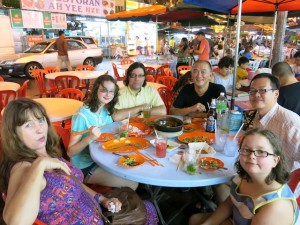 Kuala Lumpur last Saturday evening (11th Jan), stumbling into our hotel after the 11-hour flight having watched the films Rush and one featuring an improbably accident prone and deranged Sherlock Holmes character, with the children glued to Cloudy with a Chance of Meatballs 2.
Kuala Lumpur last Saturday evening (11th Jan), stumbling into our hotel after the 11-hour flight having watched the films Rush and one featuring an improbably accident prone and deranged Sherlock Holmes character, with the children glued to Cloudy with a Chance of Meatballs 2.
Sunday 12th January took us straight into our first meeting, after a brief punctuation for swimming, to discuss the plight of the Jakun, a tribe of the Orang Asli (first people), living at Tasik Chini, one of only two natural freshwater lakes in Peninsula Malaysia. The effects of mining, concomitant environmental damage, the needs of the people and some of the perceived tensions between those working and researching with the Orang Asli were described.
Our thoughts concerning the plight of the Orang Asli were further agitated by discussion with the social science team, the meeting being chaired by Prof Dato’ Mushrifah Idris, the head of the Tasik Chini Research Centre at Universiti Kebangsaan Malaysia (UKM – National University of Malaysia) of which we are honoured to be visiting professors. The mining activities have expanded significantly since we last met with Prof Mushrifah in summer 2012 and the outlook for the already resettled Orang Asli seems increasingly bleak.
A large part of our work whilst we are with UKM is to assist with the research. We were heartened to learn of the formation of the social science team within the Tasik Chini Research Centre since our earlier discussions with Prof Mushrifah, a natural scientist. Discussion centred on the fact-finding work and concern to illuminate the perceptions of the Orang Asli, our particular contribution being to consider how we can elicit the stories, beliefs, wants and needs of an increasingly voiceless people.
Over the next few weeks we will be making introductory visits and meeting people who work alongside these groups as advocates and welfare workers. The social science team also want us to work with their social work and sociology student groups to help develop a community development approach at the Tasik Chini site. It was suggested that a Participatory Action approach would probably be the best way forward where community members act as equal partners with academic staff and students to identify needs and solutions.
From the first meeting onwards, we also discussed some of the fears expressed about developments in social work education and practice as Malaysia moves slowly towards passing, and subsequently, implementing its Social Work Bill. A new college initiative is being proposed to address some of the anxieties of non-social work graduates and many NGOs regarding the concern that they will be marginalised by graduate social workers solely benefitting from social work becoming a protected title. We have been asked to advise on the curriculum in this venture.
We were also invited to assist in the development of a new Master’s programme in social work at UKM, determining whether a niche in medical sociology and social work or an emphasis on marginalised and disadvantaged groups would play best to strengths. Prof Vishantie Sewpaul, vice president of the International Association of Schools of Social Work and Kwa-Zulu Natal South Africa, and ourselves joined the UKM team in exploring how they might best develop the academic elements and niche areas. This will involve further discussion but was given a boost the following day (Thurs 16th) at a special colloquium at the Institut Sosial Malaysia, in which we advised on publication and research strategies.
In between this work, background reading, catching up with emails (when we can as email connection is sporadic!) trying to swat mosquitoes, find food and locate a local launderette – and generally navigate our way around on foot in a largely non-pedestrian society where wheels are essential, we are also busily educating our children. In many ways this provides an important balance and helps us in engaging with our family-friendly hosts!
We have also been delighted to meet our former Malaysian students attending the meetings that we have each respectively taught over the years at Universiti Malaysia Sarawak and at University of Hull, who have now reached positions of prominence in their chosen professions. We were both astonished to find out that so many people we have met this week were not only were aware of our individual previous research but were able to refer knowledgably to a number of our papers that relate to the Malaysian context.
So early days and only one week in; but already there are signs of meeting those key fusion objectives of developing international research links, educational opportunities that may link to professional practice outcomes.
Jonathan Parker & Sara Ashencaen Crabtree

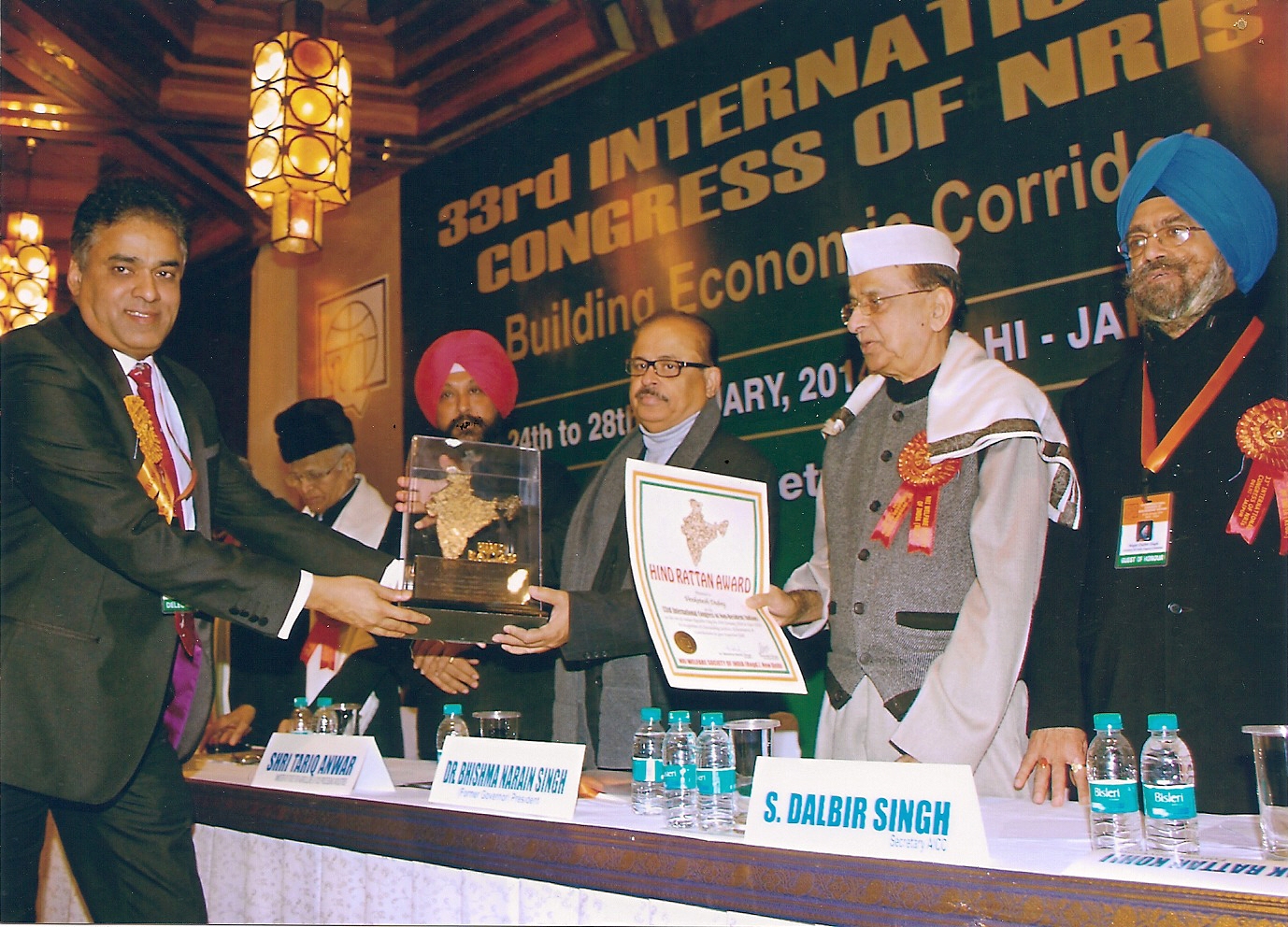
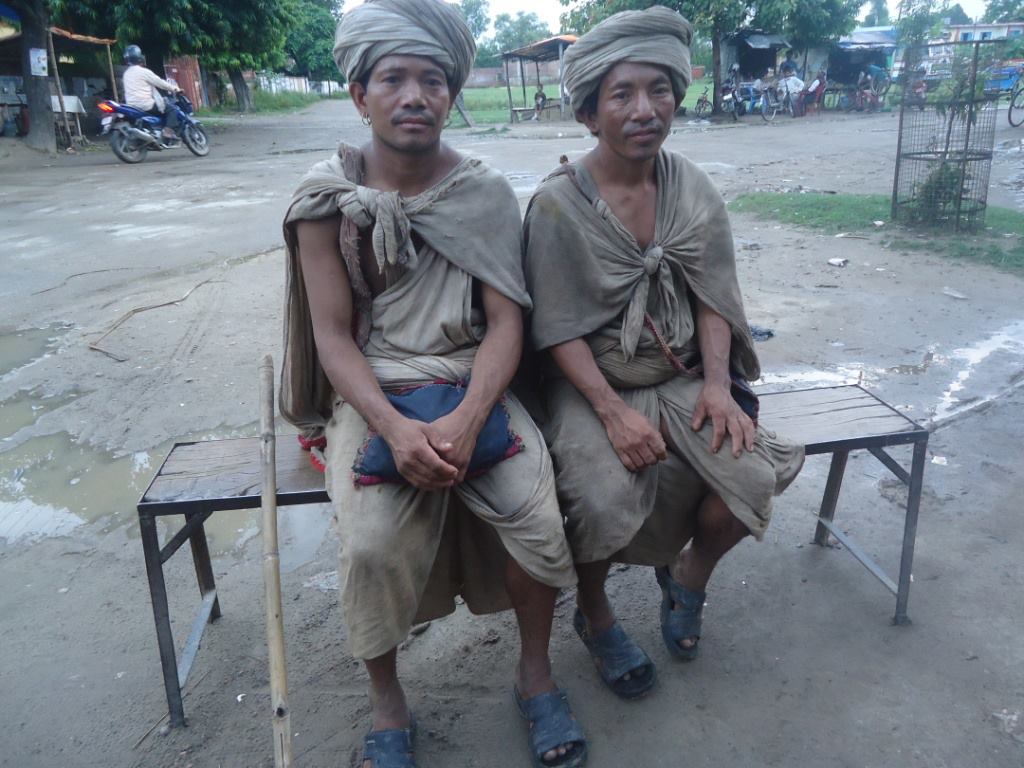











 Nursing Research Impact in Nepal
Nursing Research Impact in Nepal Fourth INRC Symposium: From Clinical Applications to Neuro-Inspired Computation
Fourth INRC Symposium: From Clinical Applications to Neuro-Inspired Computation ESRC Festival of Social Science 2025 – Reflecting back and looking ahead to 2026
ESRC Festival of Social Science 2025 – Reflecting back and looking ahead to 2026 3C Event: Research Culture, Community & Cookies – Tuesday 13 January 10-11am
3C Event: Research Culture, Community & Cookies – Tuesday 13 January 10-11am Dr. Chloe Casey on Sky News
Dr. Chloe Casey on Sky News ECR Funding Open Call: Research Culture & Community Grant – Application Deadline Friday 12 December
ECR Funding Open Call: Research Culture & Community Grant – Application Deadline Friday 12 December MSCA Postdoctoral Fellowships 2025 Call
MSCA Postdoctoral Fellowships 2025 Call ERC Advanced Grant 2025 Webinar
ERC Advanced Grant 2025 Webinar Horizon Europe Work Programme 2025 Published
Horizon Europe Work Programme 2025 Published Update on UKRO services
Update on UKRO services European research project exploring use of ‘virtual twins’ to better manage metabolic associated fatty liver disease
European research project exploring use of ‘virtual twins’ to better manage metabolic associated fatty liver disease